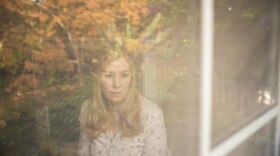RENEE MONTAGNE, Host:
Venezuela's Hugo Chavez has a new crusade, creating young patriots loyal to his leftist ideology. His government plans to do this through the education system. There are plans to replace the national curriculum with a course of study that celebrates socialism. But the effort has generated a formidable opposition, irate parents who don't want leftist ideology injected into their kid's educations. NPR's Juan Forero reports from Caracas.
JUAN FORERO: Residents of the affluent Altameda(ph) neighborhood are not much used to commotion. Theirs is an elegant community of big homes and leafy streets.
(SOUNDBITE OF SPANISH MEETING)
FORERO: But on a recent night, hundreds of residents closed the street and crowded to listen to one speaker after another denounce the government's proposed educational reform.
(SOUNDBITE OF CHANTS IN SPANISH)
FORERO: Parents agreed shouting, no means no. Not far from Altameda is another quiet neighborhood.
(SOUNDBITE OF SPRINKLER)
FORERO: The Arturo Uslar Pietri house features a verdant lawn and tropical birds perched on fruit trees. It's meant to be a quiet place of reflection. For the late Uslar Pietri is considered one of Venezuela's great writers. But the director of the Uslar Pietri Foundation does more than oversee the writer's formidable collection of books. Antonio Ecarri also helps lead a movement of parents that wants to stop the government's reform.
MONTAGNE: (Through translator) What the government wants to do is approve an educational model behind the country's back. What worries us is the politicization of Venezuelan education.
FORERO: Opponents say the new reform is more about ideology than educating children. An early proposed curriculum heaps praise on what President Hugo Chavez calls a socialist revolution designed to transform this oil rich country and extols heroes of leftist Latin American revolutionary movements. It also teaches that capitalism has been used to subjugate people. The main culprit is the United States, which Chavez says wants to dominate the world. At the Fermin Toro School in downtown Caracas teachers and students say the opposition is exaggerating the dangers for political gain. The school for 850 students is a so-called Bolivarian School, so named in honor of Chavez's guiding light, the independence hero Simon Bolivar. The public school is opened all day providing basics in the morning and classes like painting and theater production in the afternoon. Principal Juanas Sierras(ph)says the goal is also to create model citizens and one day replicate the model across Venezuela.
MONTAGNE: (Through Translator) What's the kind of citizen we want? A Venezuelan highly humanistic with solidarity who knows history, who knows the Venezuelan Indian, who knows all the resources the fatherland has.
FORERO: In one class, children play chess...
(SOUNDBITE OF CHILDREN PLAYING AND TALKING IN SPANISH)
FORERO: ...while other practice the martial arts. The class offerings are eclectic. Media Salas(ph) teaches cooking, and she says her students flourish because of the close relationships they have with their teachers. They're on a first name basis after all.
MONTAGNE: (Through Translator) If we don't integrate, then it doesn't work. If we're on par with them everything works well. If it's I'm a teacher, I rule, that doesn't work.
FORERO: Across town in a wealthy district is the Santiago de Leon School. Under Chavez's plan, private schools would also have to follow a new curriculum. That has parents like Adriana de Amaya(ph) worried. She has a nine-year-old boy in the school and she's upset because she says the government is orchestrating forms without the input of parents like her.
MONTAGNE: (Through Translator) As parents, we want to chose education for our children, not that it be imposed by the president.
FORERO: Juan Forero, NPR News, Caracas, Venezuela. Transcript provided by NPR, Copyright NPR.





